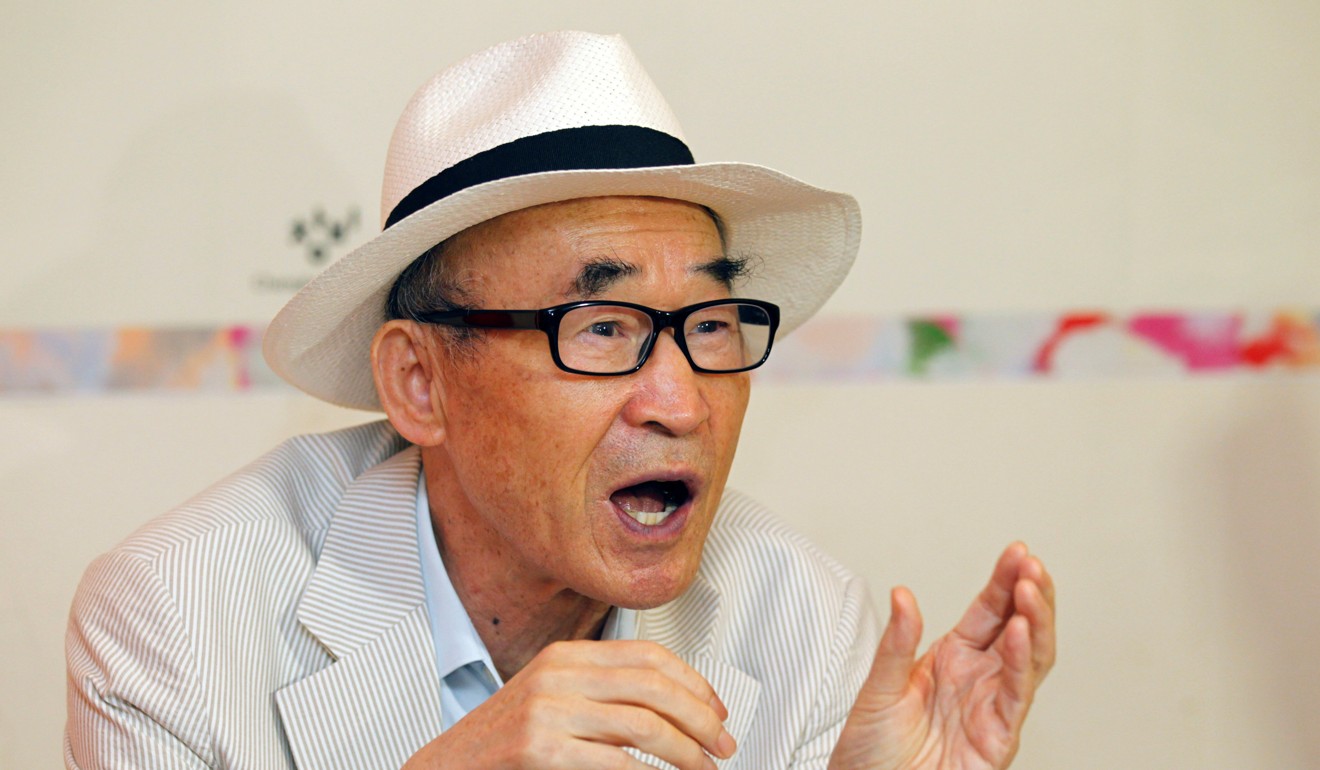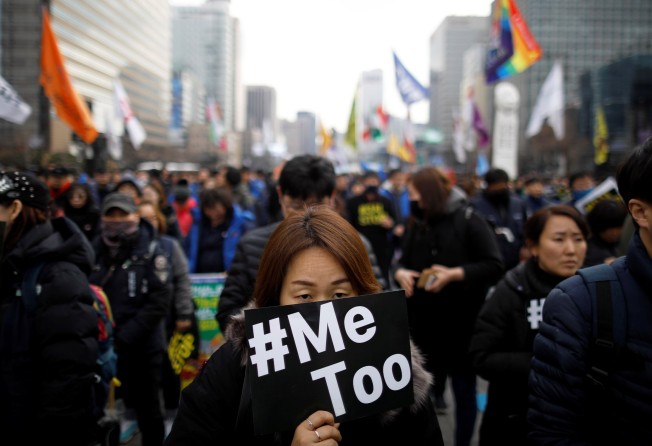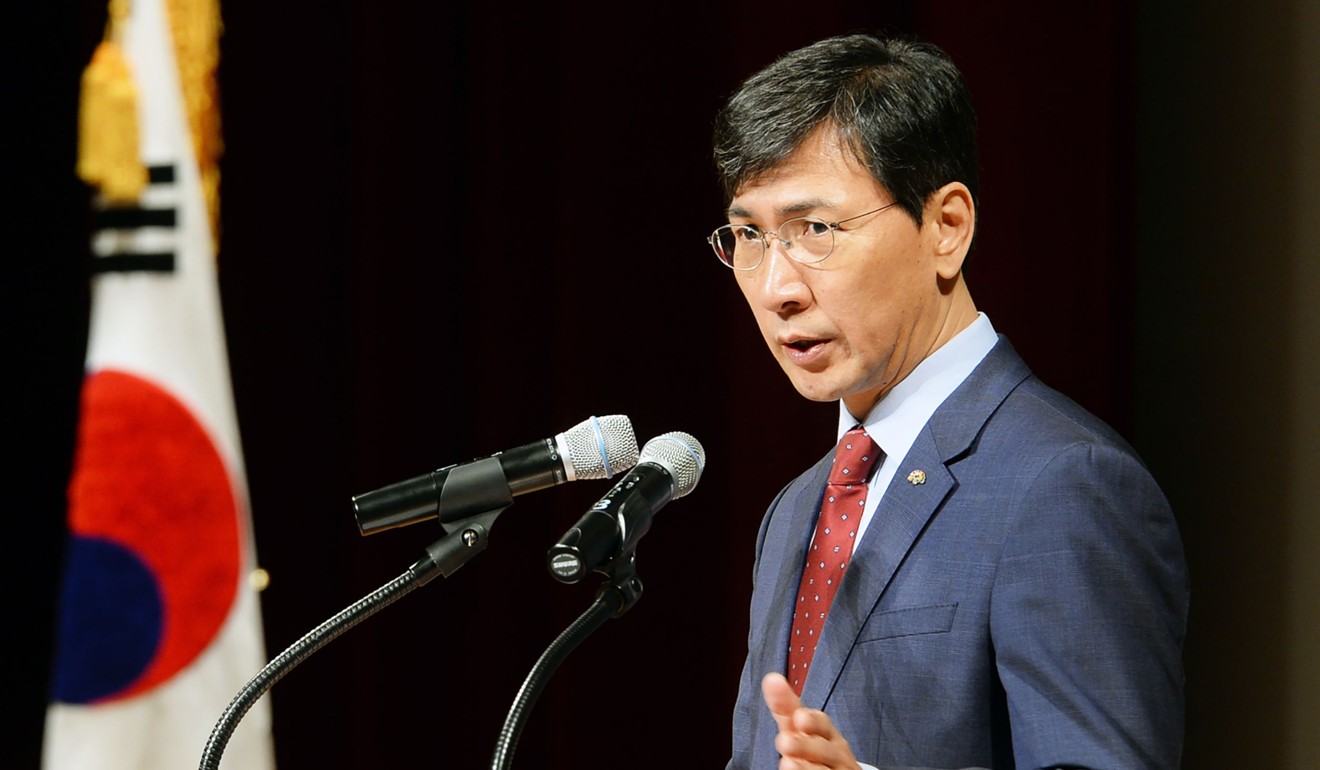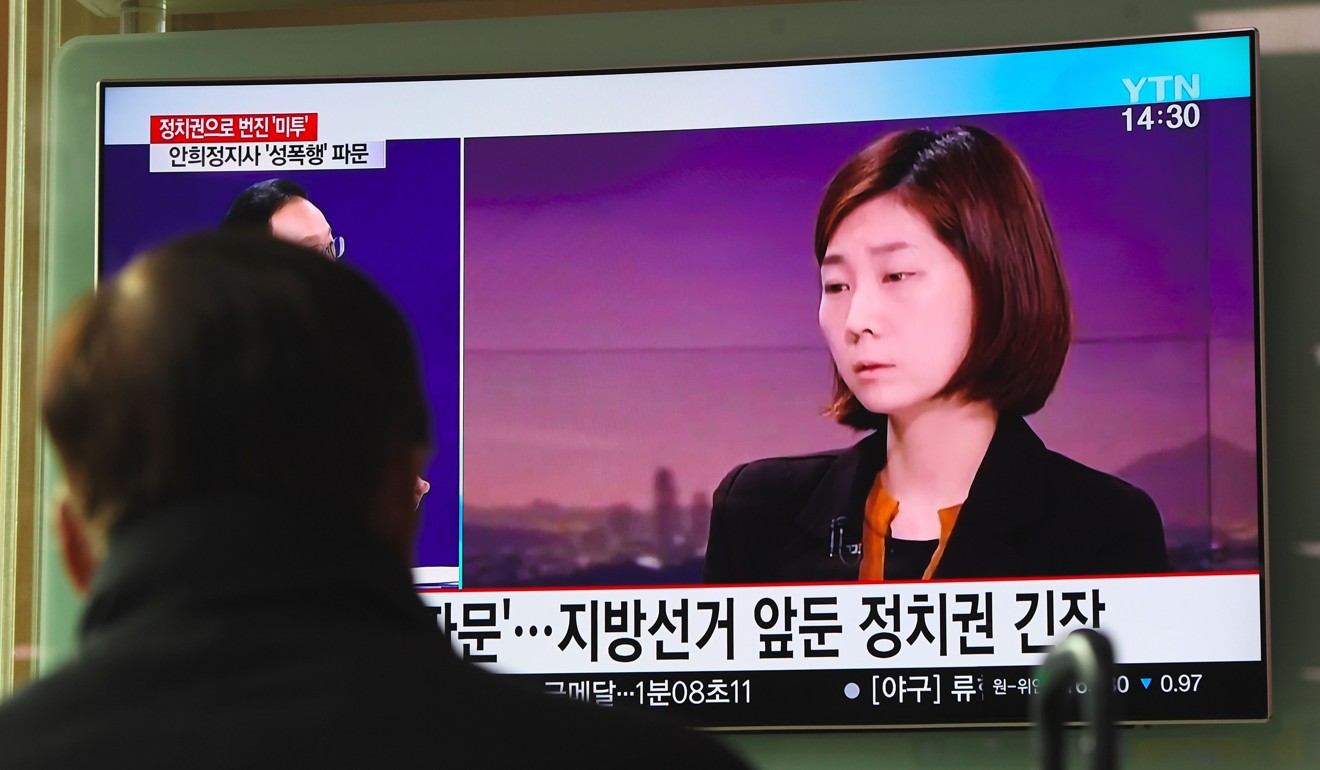
South Korean writers, artists accused of abuse to be erased from textbooks as country gets behind #MeToo
Seoul’s education ministry describing the trio – a poet, a stage director and playwright – as ‘figures who created social controversy’

Three prominent South Korean writers and artists who have been accused of sex abuse will have their works and almost all mentions of their names removed from school textbooks, the government said Thursday, as the country’s nascent #MeToo campaign spreads.
A growing number of women have spoken out about abuses they suffered at the hands of powerful figures in multiple fields, making headlines in a country that remains socially patriarchal despite economic and technological advances.
Those accused of sexual misconduct include Ko Un, a top poet regularly tipped for the Nobel Prize for literature, prominent stage director Lee Yoon-taek and playwright Oh Tae-seok.
Seoul poet Choi Young-mi accused Ko of sexually abusing many women in literary circles, after publishing a thinly veiled poem Monster, in which she detailed her experiences at his hands.
Lee is under investigation for raping or sexually harassing more than 10 actresses at his theatre group, and Oh is also accused of harassing actresses and students.

The trio’s works and about 40 references to them will be erased from school textbooks, Seoul’s education ministry said, describing them as “figures who created social controversy”.
Only a few passing mentions of their names will remain, the education ministry said without elaborating further.
Ko also stepped down on Wednesday as the president of a joint board to create a Korean-language dictionary aimed at bridging the widening linguistic divide between the two Koreas.
Ko has denied the allegations against him in a statement to The Guardian, saying he did “nothing which might bring shame on my wife or myself”.
Lee apologised for causing “harm” to actresses, saying he was willing to “take any punishment”, but denied accusations of rape. Oh has refused to comment.
Women in South Korea have long been reluctant to come forward about sex abuse due to fears of relentless public shaming and bullying.
But a Seoul prosecutor in January made a rare move to speak out about sex abuse by a superior on live television, triggering a wave of accusations against figures ranging from artists to politicians.
The most high-profile target is Ahn Hee-jung, a former presidential contender and a star politician who announced his resignation as a provincial governor and retirement from politics on Tuesday after an aide accused him of multiple rapes.


Ahn, 52, on Thursday cancelled a planned press conference after another woman came forward to claim that she also had been raped by him repeatedly, as prosecutors opened an inquiry.
Amid the barrage of allegations, scores of women’s rights activists staged protests to mark International Women’s Day, urging stern punishment for offenders and expressing support for victims.
“Can’t trust empty apologies! They need to take legal responsibility!” shouted activists wearing black outfit and waving roses at a rally in Seoul.
Many held banners reading “#MeToo, #WithYou”, chanting slogans including “You are not alone! We are with you!”